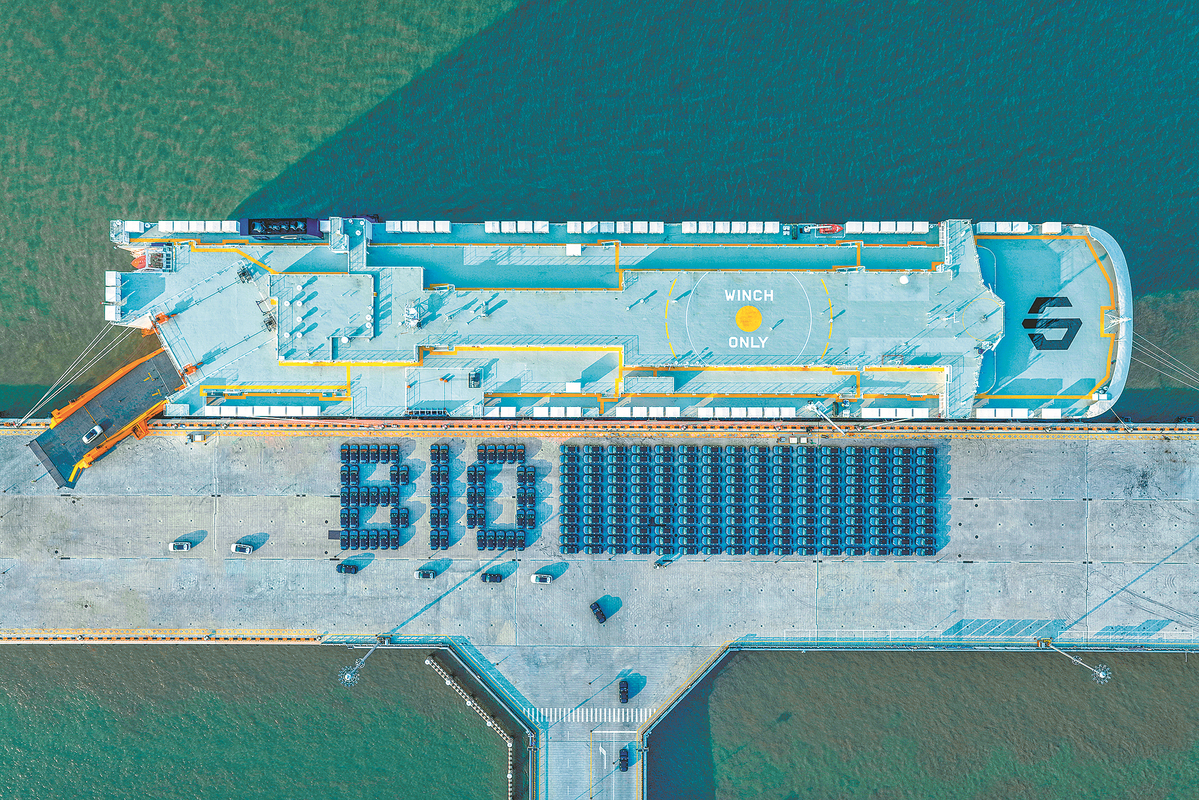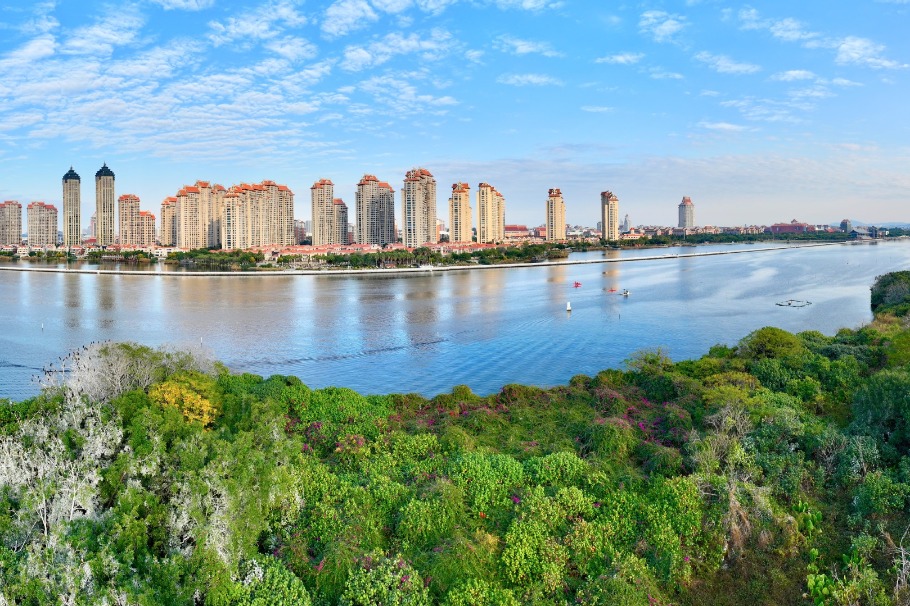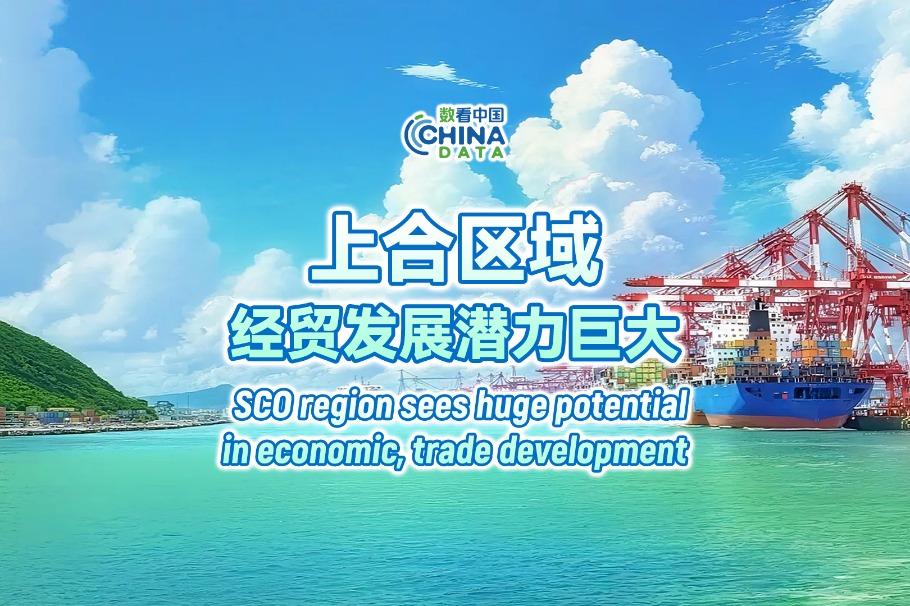Domestic brands drive global push from regional output to ecosystem


Chinese automakers have moved beyond simple product exports and entered a new phase of industry chain globalization, including localized production and ecosystem services.
A train loaded with components from FAW Group departed from Changchun, Jilin province, for Europe last week, marking the automaker's first direct China-Europe Railway Express service. The train, carrying components for FAW's Hongqi, Jiefang and Bestune brands, will travel 7,900 kilometers, passing through Manzhouli Port before continuing on to Europe.
FAW has adopted a multimodal transport solution that integrates rail and sea freight with overseas warehousing, which reduces logistics costs and enhances the resilience of its supply chain.
Chinese new energy vehicle startup Leapmotor announced that its global model, the B10 SUV, set sail for Europe last week. The model will debut in Europe at the IAA Mobility in Munich, Germany, on Sept 8, with deliveries beginning simultaneously.
To meet diverse market demands, Leapmotor designed the B10 to international standards from the beginning of research and development. The vehicle complies with regulatory requirements across 53 countries and regions, with adaptations for different markets.
It has also undergone millions of kilometers of testing in extreme environments across 200 cities in 18 countries throughout Europe, South America, Africa, and Asia.
Priced at 29,900 euros ($34,890) in Europe and equipped with a cockpit chip and a lidar-based advanced driver-assistance system, Leapmotor's international partner Stellantis expects the B10 to be "one of the most competitive electric SUVs in its class" at this price.
According to reports from Chinese media on Thursday, Leapmotor has selected Stellantis' Zaragoza plant in Spain as its manufacturing base in Europe. With 43 years of auto manufacturing experience and an annual production capacity of 300,000 vehicles, the Zaragoza facility will begin producing Leapmotor's B-series models after retooling, starting with the B10 in the third quarter of 2026, followed by the B05 compact.
BYD has also made moves toward localized production in overseas markets recently. China's largest NEV maker launched the new Seal sedan in Malaysia on Aug 22 and announced that it would establish an assembly plant in the country, which is expected to begin operation in 2026.
Just four days later, BYD Thailand announced that it had exported more than 900 NEVs manufactured at its Thai factory to Europe for the first time, including shipments to the United Kingdom, Germany, and Belgium.
BYD's Thai plant, which was put into operation in July 2024, covers the entire production process including stamping, painting, welding, and assembly, with annual production of 150,000 units. Such an approach helps effectively circumvent trade barriers and reduce logistics costs.
Chinese automakers are also exploring deeper localization in market services. SAIC Motor launched its first overseas joint experience center for its Wuling and MG brands in Jakarta, Indonesia, last week. The center is operated by ZHC Aladin International, an automotive sales company with Chinese investment.
The center will offer Indonesian consumers a seamless experience throughout their vehicles' life cycle. Plans include expanding services to used car sales, maintenance, rentals, the import-export of vehicles and parts, and launching customer service centers, customized modifications, and livestreaming facilities, according to company CEO Shao Junkan.
According to data from the China Association of Automobile Manufacturers, China exported 3.68 million vehicles in the first seven months of 2025, up 12.8 percent year-on-year. Among them, NEV exports reached 1.31 million units, jumping 84.6 percent year-on-year.
Uber CEO Dara Khosrowshahi praised Chinese EVs as "unbelievable" for their advanced features, affordability, and rapid innovation, fueled by integrated supply chains, government support, and massive scale.
Speaking on a podcast, Khosrowshahi said China is not just building EVs, it is innovating across the entire EV ecosystem — from battery technology to charging infrastructure and software.
caoyingying@chinadaily.com.cn




































